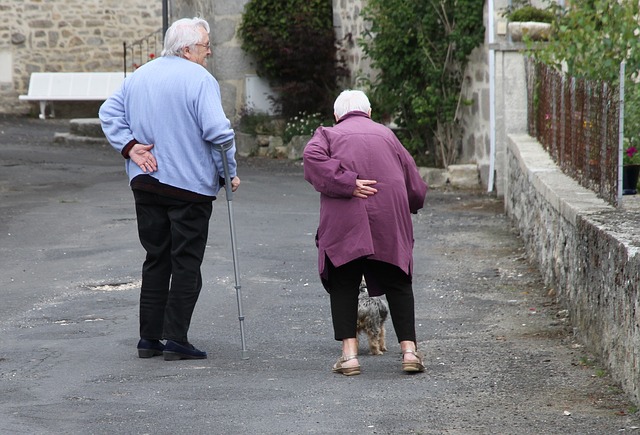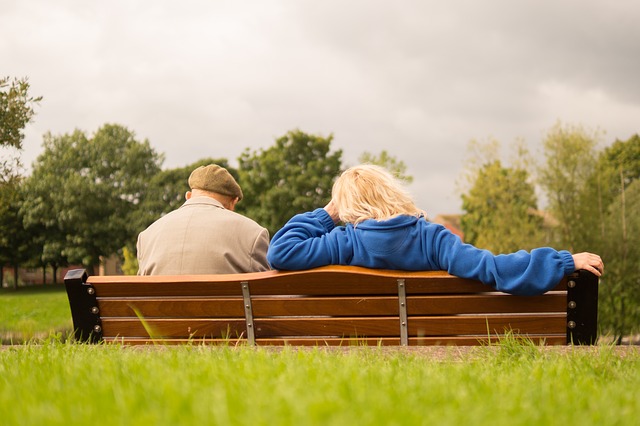
Image Source: Pexels
Does your grandma or granddad easily feel tired than usual? Do they smile or laugh less than they used to do?
It’s possible that they’re stressed out.
Stressed seniors can be challenging to handle, especially if they’re about to transition to a nursing home or aged care center. They might back down from the transfer even though they initially agreed to it. Now, it is also possible that the transfer to assisted living is the cause of their stress.
Either way, you can alleviate stress by understanding the condition better. The more you know about it the more equipped you are in helping you and an elderly deal with or manage stress.
Below are some important bits of information you must know.
Effects of stress on aging
Did you know that stress can make the clock’s hands run faster than usual? Stress speeds up aging in many adults and the elderly. That means, even though people are mentally alert for their age, constant exposure to stressors will dampen their vigor. The result is their cells will have a hard time regenerating. This is called cellular senescence.
Cellular senescence, or biological aging, is caused by factors such as telomere shortening genotoxic stress. Now, when normal cells don’t divide like they used to, the most common outcome is premature aging. Worse, people whose cells are shrinking too fast might develop cancer or eventually have shorter lifespans. In addition, other factors that lead to the latter are untreated depression and loneliness. (See also: Key Tips On How To Help Take Care Of Your Parents In Old Age Better)
Stress in aging people
One may think that because these seniors are in retirement, they might not feel stressed at all. Alternatively, their relatives might think that they’re stressed just because they’re old. Actually, it’s not that simple – being old is hardly the sole reason for stress. Stress can still come in aging people most likely because of physical, financial, environmental, and even social factors.
For example, they might become stressed out because of debt, death of a partner, or loneliness. In fact, retirement itself could be the top reason for their acquired stress.
There is one hypothesis that some older people might benefit from working longer hours. Apparently, this keeps them mentally sharp and active. Nevertheless, retirement still has its pros and cons, depending on the individual’s health and values. (See also: What Senior Lifestyle Should You Choose?)
Two types of stress in older people
1. Physical stress

Image Source: Pixabay
When old people are stressed, any activity that requires physical movement and effort becomes harder to do. Even light to moderate exercise becomes more difficult. Brisk walking for a few minutes or climbing the stairs would tire them quickly. Moreover, wounds heal much slower, and their body temperature can’t adjust quickly anymore. As a consequence, they are out of breath and energy quickly.
2. Emotional stress

Image Source: Pixabay
This type of stress is more dangerous than the previous. It is risky for the sole reason that it’s invisible. You may not notice it immediately, but your elderly loved one might already be emotionally stressed, causing their body to release more stress hormones that will eventually harm their already frail or compromised health. Therefore, it’s important that you determine the obscure signs of emotional stress.
Signs of stress in the elderly
- They urinate more frequently.
- They always feel pain in their muscles.
- They’re having a difficult time sleeping.
- They forget things or people more often.
- They easily feel anxious and fearful of new things.
- They easily lose appetite, even when served with their favorite meals or drinks.
- They don’t listen to their favorite music or watch their favorite TV shows anymore.
Stress management is the key
The sad reality is that stress will always be a constant in our lives. And, this will be even harder for the elderly who already have weakened health. The good news is that you can practice stress management.
This is a series of actions that help your loved ones keep under control or eliminate their stressors. Some of the steps you could take are:
- Communicating with your loved ones – Let them know that you’re willing to help them overcome their stress. Make sure they know that support is available.
- Constant socializing – If they receive professional home care, make sure they come out and socialize with their neighbors at least two to three times a week. This will be easier if they’re in an aged care center since the carers make socializing mandatory.
- Meditating with them – Meditation is an inexpensive and practical way to manage stress. Specifically, meditation will train your loved one’s brain to become ready for stress. By being proactive through meditation, they will be less reactive to stress.
- Playing cognitive activities – If your relative is having difficulty with memory, you can sit down and play memory puzzles with them. Besides enhancing their cognition, this will also be an ideal bonding time for you and their grandkids, if they have any.
- Seek professional help – There are cases where DIY stress management steps won’t suffice. If your loved one has a substance abuse problem, it’s best to entrust their well-being to a professional. They can pinpoint the root cause of their issue and introduce them to a program if necessary.
Key takeaway
As you can see, the stress in elderlies is inevitable. But if you have the knowledge on how to better manage and deal with it once a senior loved one is experiencing it, you can alleviate it. You can even stave off stress when you follow the tips on stress management.
About The Author:
Adam Jones writes about the recent trends in aged care and actionable tips. He also advocates for quality services from aged care centers. Adam believes that if they do really care, then the center will provide top-notch services for seniors.




